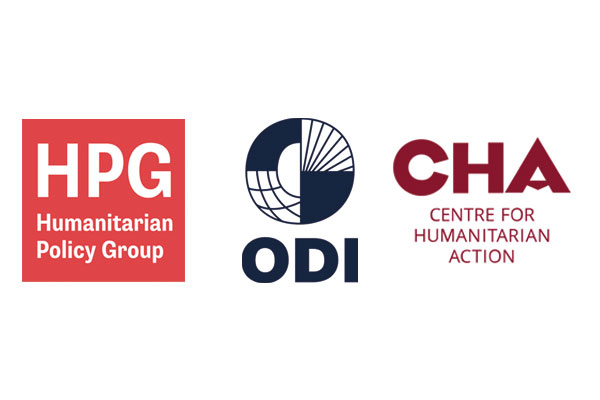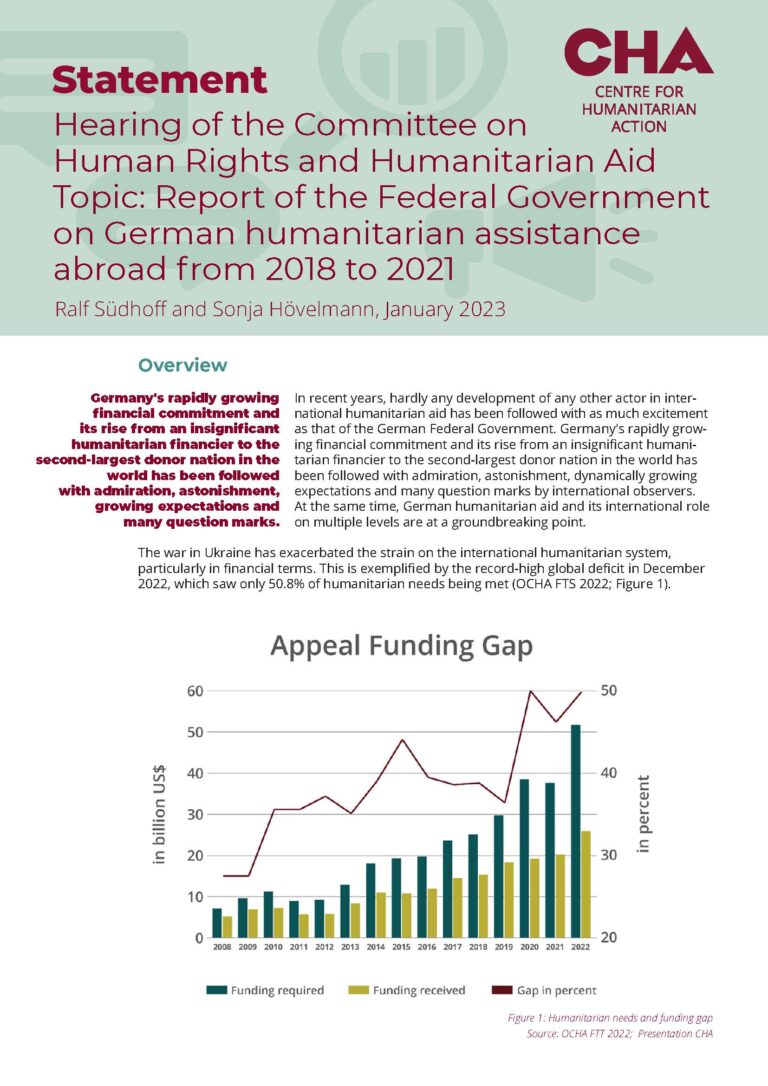| Date: | 18.10.2023 |
| Time: | 18:00 - 19:30 |
| Location: | Berlin Kreuzberg |
To mark the launch of the new study Germany’s rise as a humanitarian donor. The interplay of narratives, new foreign policy ambitions and domestic interests authored by Corinna Kreidler (independent consultant), Sonja Hövelmann (CHA) and Alexandra Spencer (ODI/HPG), the Humanitarian Policy Group at ODI and the Centre for Humanitarian Action invited to a panel discussion on the topic in Berlin.
978 million euros. This is the value of the expected cuts to Germany’s humanitarian budget in 2024. At the same time, the US has decreased its humanitarian budget by 40% for this and next year and other countries are set to follow suit. Yet, there are rising numbers of people in need and funding requirements are far outweighing the volume of humanitarian assistance provided. How can political will be generated to address the challenge of financial sufficiency in the humanitarian sector?
A new study conducted found that narratives can have huge impact in generating the political will to make funding available for humanitarian assistance. We analysed how narratives around ‘aid preventing flight and stemming migration’ resulted in a significant uptick in funding. The Germany case shows the potential for tremendous, short-term benefit of linking aid with national interest through (false) narratives, particularly where there is an opportunity for this to be amplified through an enabling media environment and widespread public support. But without a strong foundation this narrative and thus basis for aid can be very fragile as the context changes.
With the current level of underfunding, is it ok, even necessary, to play that card again? Is capitalising on narratives that serve domestic or foreign policy interests a legitimate instrument to raise state funds for humanitarian action? Or have we opened Pandora’s box by instrumentalising simplified narratives that tap into the political, if donors are not willing to help out of altruistic reasons?
The event launched the study, sharing findings from the Germany case study which explores how narratives worked and why. We then discussed recommendations for better political communication to future-proof humanitarian funding with:
- Frank Schwabe, Member of the German Bundestag / SPD
- Horand Knaup, Journalist
- Florian Westphal, CEO, Save the Children Germany
Note that this event was onsite only and was not recorded:






